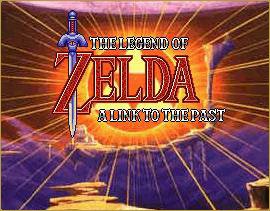Hey Nintendo? Please rethink this...

Yesterday Nintendo announced the official name for their next console: Wii. Pronounced "we", Nintendo PR sells the idea as a coming together of sorts; of a convergence of people of all types to play games together.
Since reading the first announcement yesterday, I've gone through a few phases of response to this:
Revulsion
Revolution was a great name. Admittedly a bit long-winded, the Revolution moniker carried a certain edge to it, almost as if Nintendo was revolting against the status quo and busting down the doors of convention. A sense of cool that Nintendo has lacked since the SNES era. If need be, four syllables can be cut to one, and we can call it the Rev. That's got a nice ring to it too.
Wii on the other hand does not strike me as cool, instead giving me the impression of a bunch of people in a board room talking themselves into a bad idea. A room full of people suffering from groupthink and trying to be too clever. Images float through my mind of a haughty chuckle rippling through the room, with people rapping their knuckles against the desk or snapping their fingers in an expression of approval. Essentially, it strikes me as an Apple type of move.
Wii also comes across as childish, like "Wheee!" or "wee-wee". Nintendo has struggled to break free of the reaction to the GameCube as a system for children. They designed the... Wii... as though they'd learned their lesson, but then turned around and gave it a lame name that has a built-in setup for childish jokes. It's as if they got so caught up with how clever the name matches the message that they lost sight of the fact that people will actually have to refer to the system as Wii.
"Want to play _____ on my Wii?"
"Did you see that new game for the Wii?"
"What games are good for the Wii? Where can I find a Wii for my child?"
Good God, that's horrendous.
Justification
Ok, maybe it's not so bad. After all, it does do a good job of conveying where Nintendo wants to go with the system; that is, if the general public has the opportunity to read the press release where they spell out what they mean by Wii, why there's two i's, and why the "We" concept is so important. If not, well, Wii is just crap.
As in “we.”
While the code-name “Revolution” expressed our direction, Wii represents the answer.
Wii will break down that wall that separates video game players from everybody else.
Wii will put people more in touch with their games … and each other. But you’re probably asking: What does the name mean?
Wii sounds like “we,” which emphasizes this console is for everyone.
Wii can easily be remembered by people around the world, no matter what language they speak. No confusion. No need to abbreviate. Just Wii.
Wii has a distinctive “ii” spelling that symbolizes both the unique controllers and the image of people gathering to play.
And Wii, as a name and a console, brings something revolutionary to the world of video games that sets it apart from the crowd.
So that’s Wii. But now Nintendo needs you.
Because, it’s really not about you or me.
It’s about Wii.
And together, Wii will change everything.
Effective marketing could solve this dilemma. Wii can overcome such a crappy name... wii will buy the system anyway, right? Wii will enjoy the games and have a great time with the system. Wii will download NES, SNES, N64, Genesis, and TurboGrafix-16 games. Wii will rejoice.
(suddenly I feel like I'm writing subtitles to the opening of Holy Grail... also also wik?)
Refusal
Ok, I won't be calling the system Wii. I refuse. It sounds too stupid in normal conversation. Even switching it around a bit and calling it dubya-two makes it sound like income tax, and that is not a good connection. I will continue calling it Revolution, at least until the point -- if it occurs that is -- where Nintendo again becomes synonymous with Video Game in the American vernacular. I will then simply call it "The Nintendo".
"Want to play ____ on the Nintendo?"
"Did you see that new Nintendo game?"
"What games are good for the Nintendo? Where can I buy a Nintendo?"
Much better.
UPDATE: Resolution
Behold this solid bit of logic from a wise man in DC:
dude... the wii is an excellent name - people are so stupid - and i agree that its very apple
think about when you tell a non-gamer that you have a game for the playstation 2 or the xbox 360... you always hesitate or maybe say - its for playstation or some abbreviation that's not really the same system so you don't have to say the number in the name of the system
anyone could just say - i got a wii - its totally cool and has this wand you wave around - anyone can play it...
everyone wants some crazy name like the nintendo supernova or the nintendo lightning dominator... you can't underestimate the power of a simple one syllable name - everyone will love the name in a year and if they look back at all they wrote about it now they'll feel like morons...
That's step 1 in coming around to the Cult of Wii.
(come to think of it, they should rename the Mario Club or Nintendo Fan Club to the Cult of Wii -- it makes perfect use of the duality of Wii/We/Wheeeeeee!)
Thinking over the above statements put me in the right frame of mind when I came across this gem of a logo over at GoNintendo :
This really does it for me. The logo above means two things to me: old school and fun. The ball bouncing back and forth between the i's looks a lot like Pong and to me points out the intention of the Virtual Console in bringing the past back into the present. The i's are also hopping around and animate in a playful manner; they look like they are having fun. Impressive that so simple a logo can convey the reasons I am most excited about buying a Wii.
(the fact that I'm talking about animated i's like they're people either means I'm insane or Nintendo's marketing just might work)
So I'll probably come around to calling it Wii, likely sometime after I buy one. Talking gamer-to-gamer will consistently sound weird -- and probably will never stop sounding weird even long into the system's life cycle -- but it may just work for talking with Average Joe Consumer.
Bravo, Nintendo. Maybe.

